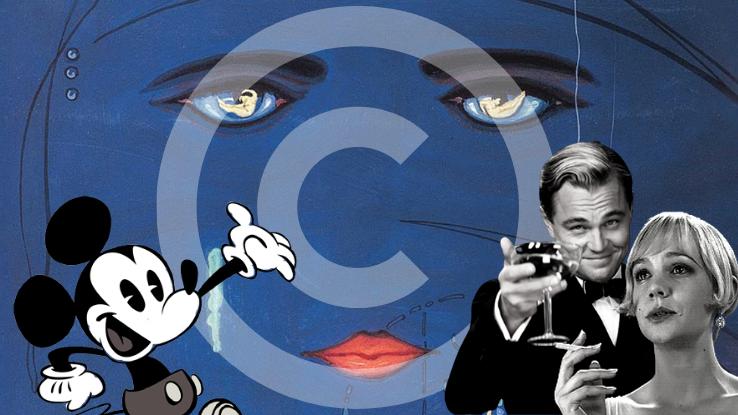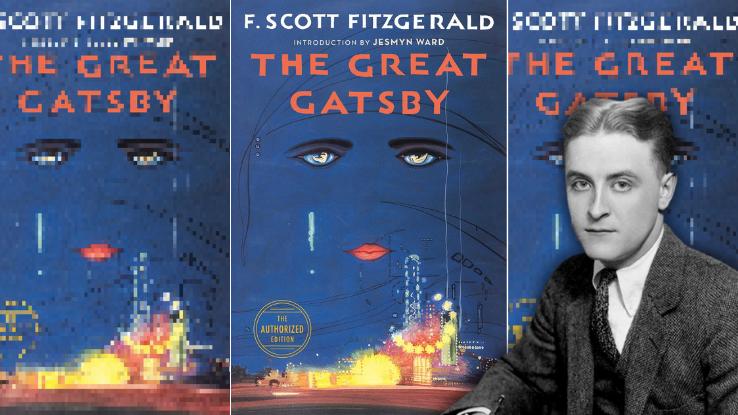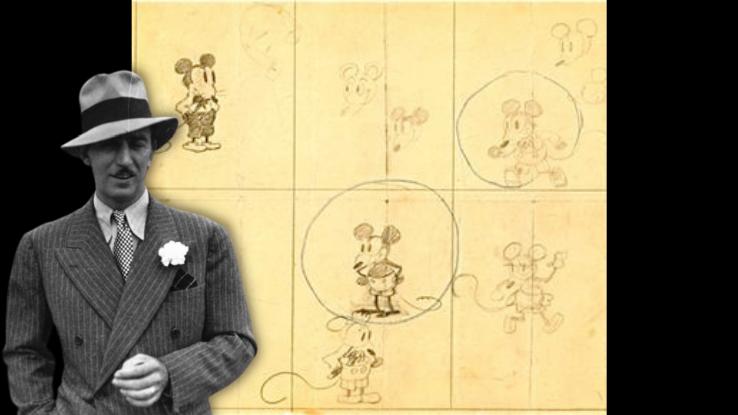Funny Mickey Mouse Mickey Mouse Patroids

Back in 2016, a U.S. district judge approved a settlement that firmly placed "Happy Birthday to You" in the public domain. Warner/Chappell Music, a music publishing company that had acquired the company that previously claimed ownership of the song in 1988, collected "Happy Birthday to You" royalties for years — and planned to do so until at least 2030. After the ruling, the plaintiffs' attorney noted that "Strong copyright protection is important for artists and content creators, but it must have limits. This landmark ruling recognizes the value of the public domain."
While, for most of us, the copyright status of something as ubiquitous as "Happy Birthday to You" wasn't really at the forefront of our minds, that notion changes when it comes to a particularly popular book, film or character. More recently, on January 1, 2021, F. Scott Fitzgerald's The Great Gatsby came into the public domain.
"It has almost the status of a holy work, and it's seen as embodying all kinds of things about American values and society," literary scholar James L. W. West III told Time. And, while writers will now have the opportunity to pen their own sequels or prequels using Fitzgerald's book as source material, West cautions against it, suggesting that it would be hard to live up to Fitzgerald's abilities. Of course, that won't stop eager fans and writers from taking the work into their own hands now that it's available.
This matter of works coming into the public domain isn't contained to "Happy Birthday to You" and The Great Gatsby. It isn't even contained to music, books and movies. In fact, one of the most contentious debates regarding public domain revolves around one of the world's most well-known and beloved fictional characters — Mickey Mouse.
Is So-Called "Public Domain Day" Something We Should Be Excited About?
So, what exactly does it mean for a work to move from copyrighted status and into the public domain? Jennifer Jenkins, a law professor at Duke University who directs Duke Law's Center for the Study of the Public Domain, clarified to NPR that a work in public domain is "free for anyone to use, reuse, build upon for anyone — without paying a fee." As far as The Great Gatsby goes, writer Michael Farris Smith saw Fitzgerald's classic entertaining the public domain as a real opportunity, penning a prequel, Nick, which examines narrator Nick Carraway's life long before he comes into Jay Gatsby's orbit.
The prequel came out on January 5, 2021, just after the first of the year — a day Duke Law had dubbed "Public Domain Day." As such, on January 1, 2021, a number of classic works from 1925 were released from copyright: Works by Virginia Woolf and Ernest Hemingway joined Gatsby in the public domain, as did music written by legends like Duke Ellington and Ma Rainey. Even some silent films belong to the people now.

According to Duke Law, works from 1925 were meant to become public domain in 2001, since that year marked the end of the 75-year copyright. So, why didn't this happen? The United States Congress extended the copyright term to 95 years in 1998, giving those works an extra 20 years' reprieve from the public's use. But that's not the first time a big adjustment has been made. The 1976 Copyright Act, which took effect in 1978, changed the terms of copyright to 50 years after the date of the author's death. The more recent extension, which was put into motion in 1998, increased the term to 70 years after the author's death — or, as mentioned above, 95 years after the work's publication date, in some cases.
Covering the boon of works entering the public domain, NPR noted that "it's difficult to overstate the importance of having work in the public domain." For example, the publication says, films can be shown widely and for free, and points out that It's A Wonderful Life(1946), which was never under copyright protection, became a classic in part because it was so accessible.
NPR also explains that, once in the public domain, "books can be published more cheaply and made available for free online; that old 'orphan' films can be preserved by archivists; that scholars can access and publish material more easily; that musicians can sample and experiment with the songs of an earlier generation and that classic characters can be given new life and new interpretations." That all sounds pretty good, right? Well, one mouse — and gigantic corporation — don't see it that way.
Disney Won't Let Mickey Mouse Go Quietly Into the Public Domain, Which Impacts Copyright Law at Large
Remember the Copyright Term Extension Act (CTEA) from 1998 that we mentioned earlier? Well, the CTEA is actually nicknamed the "Mickey Mouse Protection Act." In 1990, The Walt Disney Company was looking a little over a decade down the road, well aware that their cartoon ambassador, money-maker and brand-builder, Mickey Mouse, would soon be in the public domain.
As a result, Disney lobbied for copyright extension, thus delaying the earliest released Mickey Mouse shorts — like "Steamboat Willie" — from entering the public domain. Of course, the CTEA didn't just protect Mickey, but those who were opposed to copyright extension named the act after the character due to Disney's rather active role in creating said extension. Now, Mickey, who first appeared in theaters in 1928, will be pushed into the public domain on January 1, 2024. Well, theoretically.

When the copyright on Mickey's first outing, "Steamboat Willie," veers into the public domain, people will be able to screen the film freely, but it doesn't necessarily mean the characters in it will be up for grabs. Writing for Nova Southeastern University Florida, Stephen Carlisle notes in the 2014 article "Mickey's Headed to the Public Domain! But Will He Go Quietly?" that elements of trademark law may help Disney circumvent the seemingly inevitable.
Trademarks "protect words, phrases and symbols used to identify the source of the products or services," Carlisle writes, "Disney has made Mickey Mouse so prominent in all of their corporate dealings, that he is effectively the pre-eminent symbol of the Walt Disney Company." Heck, even three circles arranged the right way conjure up images of the mouse. Moreover, Disney has obtained trademark registrations for the words "Mickey Mouse" as well as his visual appearance across a variety of media. Plus, there's the fact that present-day Mickey looks much different from "Steamboat Willie" Mickey.
So, what will happen in 2024? In all likelihood, Mickey's original incarnation will enter the public domain, but Disney will retain the character's other incarnations and the related trademarks. It is, to say the least, messy that Disney's trademark "workaround" allows them, in some sense, to hold onto this multimedia character in perpetuity — or so it would seem. But, as Carlisle points out, "Mickey is Disney, and vice versa."
In Gatsby's famous closing passage, Fitzgerald writes, "So we beat on, boats against the current, borne back ceaselessly into the past." Sure, Nick Carraway isn't talking about copyright law, but he is pointing out the futility of trying to escape one's past. Sure enough, 90 years will eventually catch up to every beloved book, film, song and character.
Source: https://www.ask.com/news/great-gatsby-mickey-mouse-public-domain-properties?utm_content=params%3Ao%3D740004%26ad%3DdirN%26qo%3DserpIndex
0 Response to "Funny Mickey Mouse Mickey Mouse Patroids"
Post a Comment